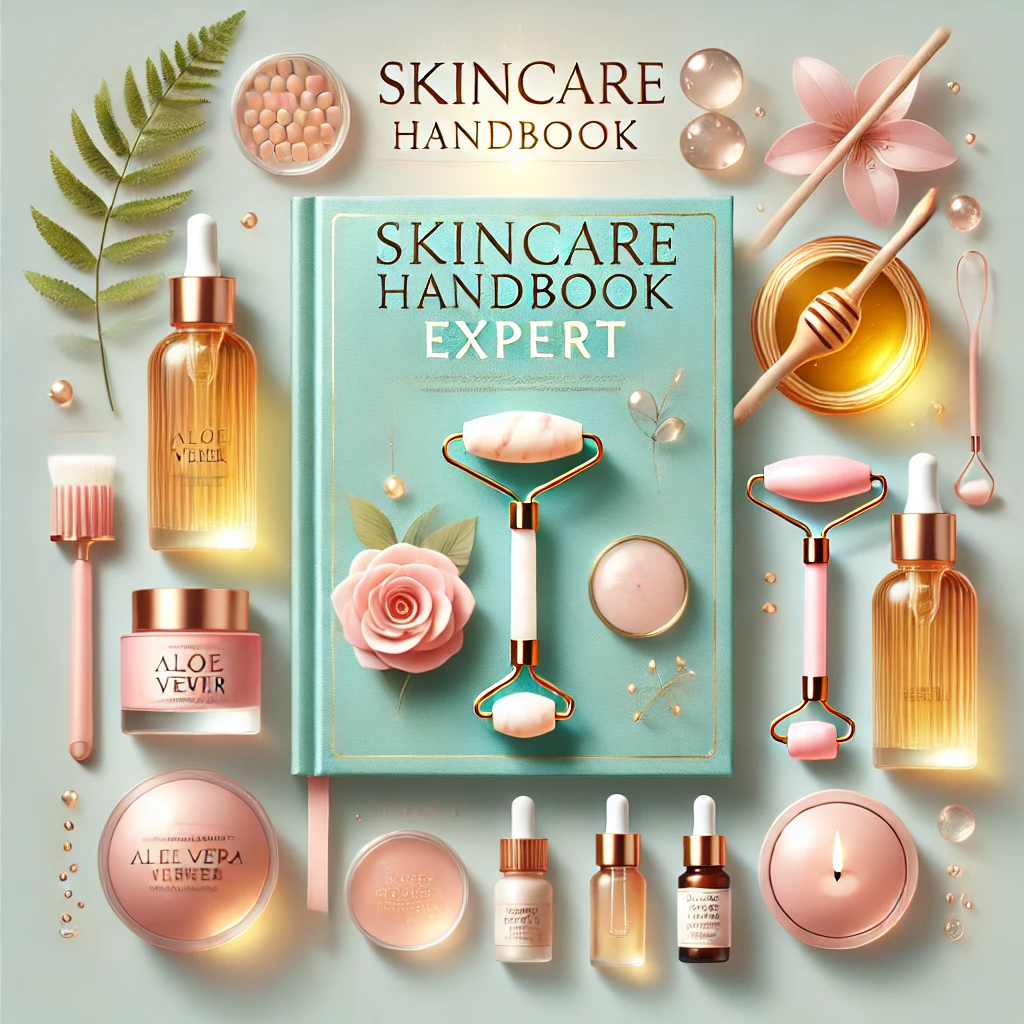The Ultimate Skincare Guide: Tips, Products, and Science for Healthy Skin

Skincare tips for healthy skin: Achieving and maintaining healthy, glowing skin requires a combination of the right skincare routine, high-quality products, and an understanding of how lifestyle factors affect your complexion. This guide covers essential skincare tips, the science behind skin aging, and how to build the perfect daily routine for radiant skin.
The Ultimate Guide to Understanding Your Skin Type
Understanding your skin type is crucial for selecting the right products. The main skin types are oily, dry, combination, and sensitive, each with unique needs. Knowing how your skin behaves helps you avoid irritation and ensures you use products that enhance your complexion.
Understanding Your Skin: The First Step to a Perfect Routine
Before embarking on a skincare regimen, it’s crucial to identify your skin type—whether it’s oily, dry, combination, or sensitive. Oily skin tends to produce excess sebum, requiring lightweight, oil-free products to prevent breakouts. Dry skin lacks moisture, benefiting from rich, hydrating creams and gentle cleansers. Combination skin has both oily and dry areas, demanding a balanced approach with targeted treatments. Sensitive skin is prone to irritation and should be treated with fragrance-free, soothing ingredients. Knowing your skin type ensures that you choose the right products and develop a skincare routine that nurtures and enhances your complexion.
Simple Ways to Determine Your Skin Type
You can easily find out your skin type at home with a quick test. Cleanse your face, let it rest for an hour, and observe its texture and oiliness. Another method is using blotting paper to check oil levels in different areas of your face. Recognizing your skin’s characteristics ensures you choose the best products for a healthy, radiant complexion.
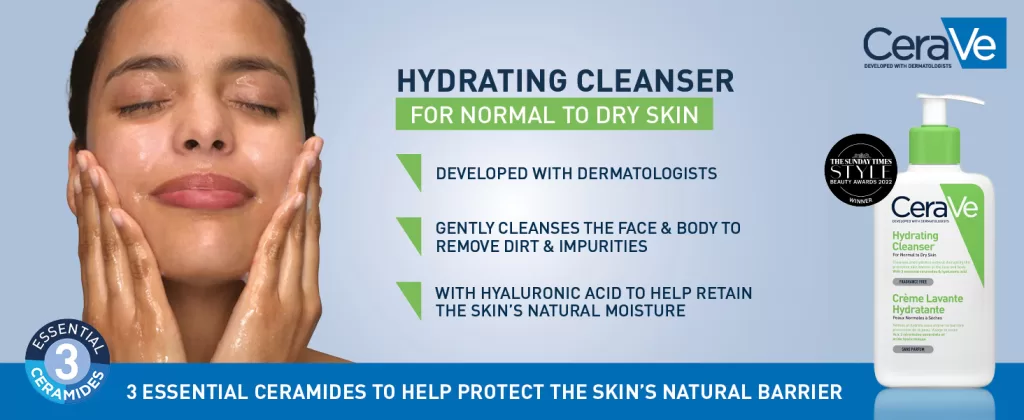
Adjusting Your Skincare Routine Based on Skin Type
Once you’ve identified your skin type, you can customize your skincare products and routines to suit your specific needs. Here’s how to care for each skin type effectively:
Normal Skin
- Routine: Maintain a balanced regimen with regular cleansing and moderate moisturising.
- Tips: Use gentle, pH-balanced products to keep your skin healthy and radiant.
Oily Skin
- Routine: Opt for oil-free and non-comedogenic products to prevent clogged pores.
- Tips: Incorporate lightweight, water-based moisturisers and exfoliate regularly to control excess sebum.
Dry Skin
- Routine: Focus on hydration by using rich, nourishing creams and avoiding harsh, drying cleansers.
- Tips: Look for ingredients like hyaluronic acid and ceramides to lock in moisture and repair the skin barrier.
Combination Skin
- Routine: Use different products for different areas of your face. For example, a lightweight moisturiser for oily zones and a richer one for dry areas.
- Tips: Balance is key—avoid over-drying oily areas while ensuring dry patches are well-hydrated.
Sensitive Skin
- Routine: Choose hypoallergenic and fragrance-free products to minimise irritation.
- Tips: Patch-test new products and introduce them gradually to avoid adverse reactions.

Common Misconceptions About Skin Types
Misinformation about skincare can lead to practices that harm your skin rather than help it. Let’s debunk some common myths to help you make informed decisions about your skincare routine.
Myth’s
1: Oily Skin Doesn’t Need Moisturiser
- Fact: Oily skin still requires hydration. Skipping moisturiser can lead to dehydration, causing your skin to produce even more oil. Use a lightweight, non-comedogenic moisturiser to hydrate without clogging pores.
2: You Can’t Do Anything About Sensitive Skin
- Fact: Sensitive skin can be managed with the right approach. Identify triggers, such as certain ingredients or environmental factors, and use hypoallergenic, fragrance-free products. Introduce new products slowly to avoid irritation.
3: Dry Skin Is Just a Cosmetic Issue
- Fact: Dry skin isn’t just about appearance—it can cause discomfort, itching, and increase the risk of premature ageing. Hydrate with appropriate moisturisers and consider using a humidifier in dry environments.
4: Sunscreen Is Only Needed on Sunny Days
- Fact: UV rays can penetrate clouds and glass, so sunscreen is essential every day, even indoors or on overcast days. Use a broad-spectrum sunscreen with at least SPF 30 to protect your skin from damage and ageing.
Final Thoughts
Understanding your skin type is a crucial step toward achieving and maintaining healthy skin. By tailoring your skincare routine and debunking common myths, you can make informed decisions that benefit your skin in the long run. For personalised advice or to explore professional skin treatments, consider scheduling a consultation with one of our skin specialists. Remember, the right care can make all the difference!

10 Essential Skincare Tips for Healthy, Glowing Skin
- Always Wear Sunscreen
- Why it’s important: UV rays break down collagen, cause hyperpigmentation, and increase the risk of skin cancer.
- Product Recommendations:
- Dermatologist Tip: Dr. Whitney Bowe recommends reapplying sunscreen every 2 hours when outdoors.
- Stay Hydrated
- Why it’s important: Hydration plumps the skin, reduces the appearance of fine lines, and improves elasticity.
- Tip: Aim for 8-10 glasses of water daily. Incorporate hydrating foods like cucumbers and watermelon.
- Follow a Consistent Routine
- Why it’s important: Consistency helps maintain the skin barrier and prevents irritation.
- Basic Routine: Cleanse → Treat (serums) → Moisturize → Protect (sunscreen).
- Use Gentle Cleansers
- Why it’s important: Harsh cleansers disrupt the skin’s pH balance and strip natural oils.
- Product Recommendations:
- Dermatologist Tip: Dr. Shereene Idriss suggests avoiding sulfates and fragrances in cleansers.
- Moisturize Regularly
- Why it’s important: Moisturizers lock in hydration and strengthen the skin barrier.
- Product Recommendations:
- Incorporate Antioxidants
- Why it’s important: Antioxidants like Vitamin C neutralize free radicals and brighten the skin.
- Product Recommendations:
1. Get Enough Sleep
- Why it’s important: Sleep allows the skin to repair and regenerate.
- Tip: Aim for 7-9 hours of sleep nightly. Use silk pillowcases to reduce friction.
2.Exfoliate Weekly
- Why it’s important: Exfoliation removes dead skin cells and promotes cell turnover.
- Product Recommendations:
3. Eat a Skin-Friendly Diet
- Why it’s important: Nutrients like omega-3s and vitamins support skin health.
- Tip: Include foods like salmon, avocados, and leafy greens.
4. Manage Stress
- Why it’s important: Stress triggers cortisol, which can lead to breakouts and premature aging.
- Tip: Practice mindfulness, yoga, or meditation.
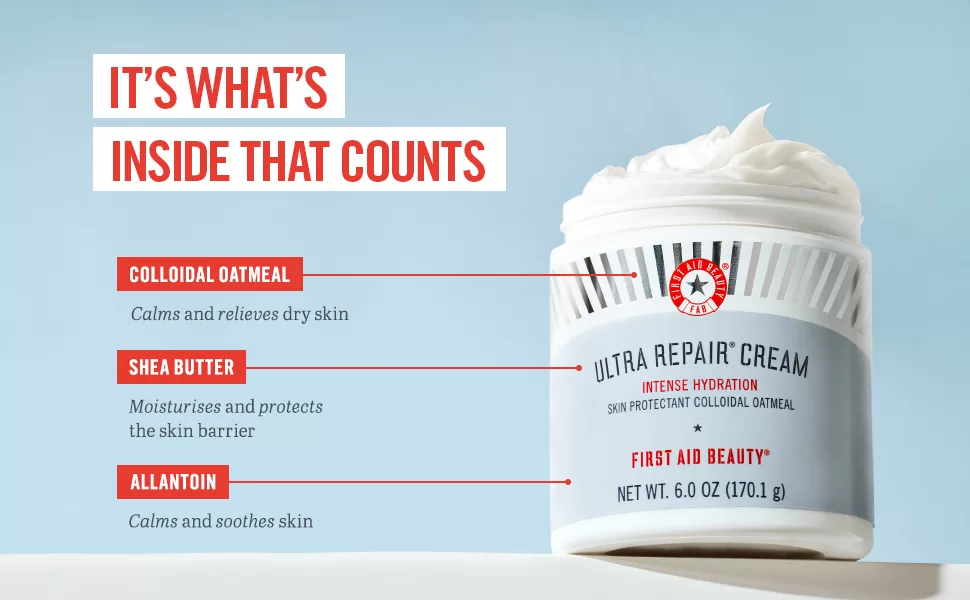
The Ultimate Guide to Understanding Your Skin Type
- Oily Skin:
- Characteristics: Shiny, enlarged pores, prone to acne.
- Product Recommendations:
- Cleanser: La Roche-Posay Effaclar Purifying Foaming Gel
- Moisturizer: Clinique Dramatically Different Moisturizing Gel
- Dry Skin:
- Characteristics: Flaky, tight, and prone to redness.
- Product Recommendations:
- Cleanser: Cetaphil Gentle Skin Cleanser
- Moisturizer: Dr. Jart+ Ceramidin Cream
- Combination Skin:
- Characteristics: Oily T-zone with dry cheeks.
- Product Recommendations:
- Cleanser: Fresh Soy Face Cleanser
- Moisturizer: Tatcha The Water Cream
- Sensitive Skin:
- Characteristics: Easily irritated, prone to redness.
- Product Recommendations:
- Cleanser: Aveeno Calm + Restore Nourishing Oat Cleanser
- Moisturizer: First Aid Beauty Ultra Repair Cream
- Normal Skin:
- Characteristics: Balanced, few imperfections.
- Product Recommendations:
- Cleanser: Glossier Milky Jelly Cleanser
- Moisturizer: Kiehl’s Ultra Facial Cream
Men’s Skincare: Tailored Tips for Healthy, Confident Skin
While skincare is essential for everyone, men’s skin has unique characteristics that require a slightly different approach. From thicker skin and higher oil production to the challenges of shaving, men can benefit from a tailored skincare routine. Here’s a guide to help men achieve healthy, clear, and confident skin.
Why Men’s Skin is Different
- Thicker Skin: Men’s skin is about 20-25% thicker than women’s due to higher collagen density, which can make it more resilient but also prone to clogged pores.
- More Oil Production: Testosterone increases sebum production, making men more prone to oily skin and acne.
- Shaving Challenges: Regular shaving can lead to irritation, razor burn, and ingrown hairs, requiring specific care.
- Aging Patterns: Men tend to develop deeper wrinkles and lines, often starting later than women but progressing more quickly.
Essential Skincare Tips for Men
- Cleanse Daily:
- Use a gentle, non-drying cleanser to remove dirt, oil, and sweat without stripping the skin. Look for ingredients like salicylic acid if you’re prone to breakouts.
- Product Recommendation: CeraVe Foaming Cleanser or Jack Black Pure Clean Daily Facial Cleanser.
- Moisturize, Even if You Have Oily Skin:
- Hydration is key for all skin types. Opt for a lightweight, oil-free moisturizer if you have oily skin, or a richer formula if your skin is dry.
- Product Recommendation: Kiehl’s Facial Fuel Energizing Moisture Treatment for Men or Neutrogena Hydro Boost Water Gel.
- Don’t Skip Sunscreen:
- Men are often less likely to use sunscreen, but UV protection is crucial to prevent premature aging and skin cancer. Use a broad-spectrum SPF 30 or higher daily.
- Product Recommendation: La Roche-Posay Anthelios Melt-in Milk Sunscreen SPF 60 or Supergoop! Unseen Sunscreen SPF 40.
- Treat Shaving Irritation:
- Use a pre-shave oil or gel to soften the hair and protect the skin. Always shave in the direction of hair growth to minimize irritation.
- Post-shave, apply a soothing balm or moisturizer with ingredients like aloe vera or chamomile.
- Product Recommendation: The Art of Shaving Pre-Shave Oil and Baxter of California After Shave Balm.
5. Exfoliate Weekly:
- Exfoliation helps remove dead skin cells, prevent ingrown hairs, and keep pores clear. Use a gentle scrub or chemical exfoliant 1-2 times a week.
- Product Recommendation: Baxter of California Facial Scrub or The Ordinary Glycolic Acid 7% Toning Solution.
6. Address Aging Concerns:
- Incorporate anti-aging products like retinol or peptides to reduce fine lines and wrinkles. Start with a low concentration of retinol to avoid irritation.
- Product Recommendation: Peter Thomas Roth Retinol Fusion PM or Drunk Elephant A-Passioni Retinol Cream.
7. Take Care of Your Beard (If You Have One):
- Keep your beard clean and moisturized to prevent itchiness and flakiness. Use a beard wash and conditioner, and apply beard oil to keep the hair and skin underneath healthy.
- Product Recommendation: Beardbrand Beard Wash and Honest Amish Beard Oil.

A Simple Skincare Routine for Men
Morning:
- Cleanse with a gentle facial wash.
- Apply a lightweight moisturizer with SPF.
Evening:
- Cleanse to remove dirt and oil buildup.
- Use a targeted treatment (e.g., retinol or acne spot treatment) if needed.
- Apply a nourishing moisturizer or night cream.
Weekly:
- Exfoliate 1-2 times to remove dead skin cells.
- Use a hydrating face mask if your skin feels dry or dull.
Common Skincare Mistakes Men Make
- Using Bar Soap on the Face: Bar soap can be too harsh and strip the skin of its natural oils. Opt for a gentle facial cleanser instead.
- Skipping Moisturizer: Even oily skin needs hydration. Skipping moisturizer can lead to dehydration and increased oil production.
- Ignoring Sunscreen: Sun damage is a leading cause of aging and skin cancer. Make SPF a non-negotiable part of your routine.
- Over-Exfoliating: Too much exfoliation can damage the skin barrier and cause irritation. Stick to 1-2 times a week.

Real-Life Success Story: Mark’s Skincare Transformation
Skin Type: Oily, Acne-Prone
Challenge: Breakouts and shaving irritation
Routine:
- Morning: Gentle Cleanser, Oil-Free Moisturizer with SPF
- Night: Double Cleansing, Salicylic Acid Treatment, Lightweight Moisturizer
- Weekly: Exfoliation and Hydrating Mask
Experience:
Mark struggled with breakouts and razor burn for years. After switching to a tailored skincare routine, his skin cleared up, and shaving became less irritating. “I never thought skincare could make such a difference,” he says. “My skin feels healthier, and I finally feel confident going clean-shaven.”
Final Thoughts: Skincare is for Everyone
Skincare isn’t just for women—it’s a vital part of self-care for men too. By understanding the unique needs of men’s skin and following a consistent routine, you can achieve healthier, clearer, and more confident skin. Whether you’re dealing with acne, aging, or shaving irritation, the right products and habits can make all the difference.
Start Your Skincare Journey Today!
“Ready to take control of your skin? Start with a simple routine and build from there.
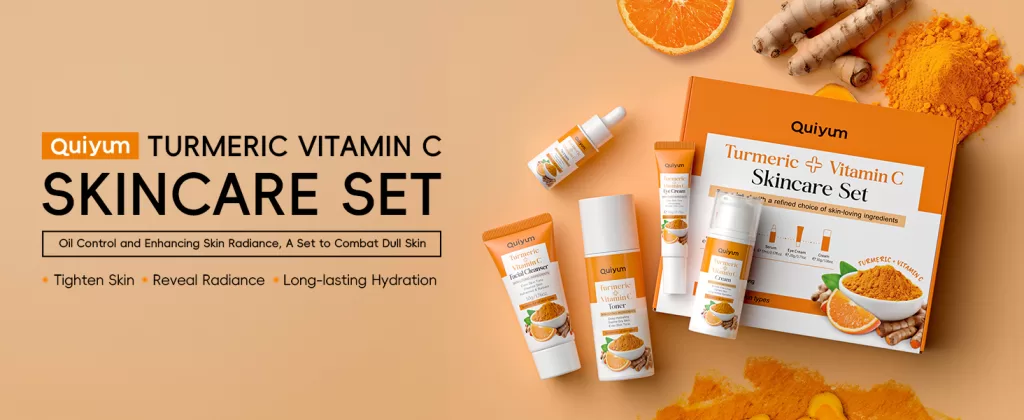
Skincare for Every Age: Tailored Tips for Teens, 20s-30s, and Beyond
Our skincare needs evolve as we age, and understanding these changes can help you maintain healthy, radiant skin at every stage of life. From managing teenage acne to addressing signs of aging in your 40s and beyond, here’s a breakdown of age-specific skincare tips to keep your skin looking its best.
Teens (13-19): Building Healthy Habits
Teenage skin is often characterized by hormonal changes, increased oil production, and acne. The focus during this stage should be on establishing a simple, consistent routine to manage breakouts and prevent long-term damage.
- Key Concerns: Acne, oily skin, blackheads, and sensitivity.
- Tips:
- Cleanse twice daily with a gentle, salicylic acid-based cleanser to control oil and prevent breakouts.
- Use a lightweight, oil-free moisturizer to keep skin hydrated without clogging pores.
- Always wear sunscreen to protect against UV damage, which can worsen acne scars.
- Avoid over-exfoliating or picking at pimples, as this can lead to scarring.
- Product Recommendations: CeraVe Acne Foaming Cream Cleanser, Neutrogena Oil-Free Moisturizer, and La Roche-Posay Anthelios SPF 60.
20s-30s: Prevention and Maintenance
In your 20s and 30s, your skin is at its peak, but this is the time to focus on prevention and maintaining its health. Sun protection, hydration, and early anti-aging measures are key.
- Key Concerns: Sun damage, early signs of aging, dehydration, and stress-related breakouts.
- Tips:
- Incorporate antioxidants like Vitamin C to protect against free radicals and brighten skin tone.
- Start using retinol to boost collagen production and prevent fine lines.
- Hydrate with hyaluronic acid to maintain plump, youthful skin.
- Don’t skip sunscreen—daily SPF use is the best defense against premature aging.
- Product Recommendations: SkinCeuticals C E Ferulic Serum, The Ordinary Retinol 0.5% in Squalane, and EltaMD UV Clear Broad-Spectrum SPF 46.
40s and Beyond: Repair and Renewal
As skin matures, it produces less collagen and elastin, leading to wrinkles, dryness, and loss of firmness. The focus shifts to repairing damage and restoring hydration and elasticity.
- Key Concerns: Wrinkles, sagging skin, dryness, and age spots.
- Tips:
- Use richer moisturizers with ceramides and peptides to strengthen the skin barrier and improve elasticity.
- Continue using retinol or switch to prescription retinoids for more potent anti-aging benefits.
- Incorporate products with growth factors or peptides to stimulate collagen production.
- Exfoliate gently to promote cell turnover and reveal brighter skin.
- Product Recommendations: Drunk Elephant Protini Polypeptide Cream, SkinMedica TNS Advanced+ Serum, and La Roche-Posay Toleriane Ultra Moisturizer.
Why Age-Specific Skincare Matters
Your skin’s needs change over time, and adapting your routine to these changes ensures you’re addressing the right concerns at the right time. Whether you’re a teen dealing with acne, a 30-something focusing on prevention, or someone over 40 looking to rejuvenate your skin, a tailored approach can make all the difference.
Find Your Age-Appropriate Routine
“No matter your age, it’s never too early or too late to start caring for your skin.
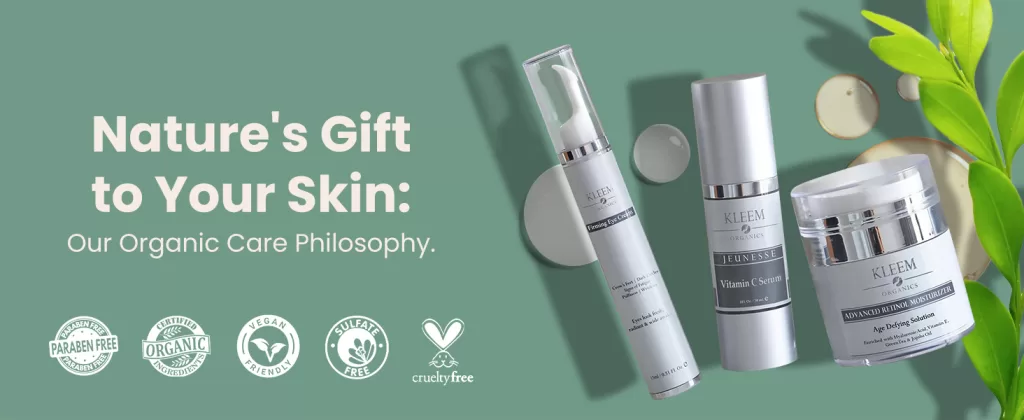
The Science of Skincare: How Key Ingredients Work and How to Combine Them for Maximum Benefits
Understanding the science behind skincare ingredients can help you make more informed choices about the products you use. Here’s a deeper dive into some of the most popular and effective ingredients, as well as tips on how to combine them for optimal results.
Hyaluronic Acid
How It Works:
Hyaluronic acid (HA) is a naturally occurring substance in the skin that can hold up to 1,000 times its weight in water. It works by attracting moisture from the environment and binding it to the skin, providing intense hydration. This helps to plump the skin, reducing the appearance of fine lines and wrinkles.
Cellular Level:
On a cellular level, HA interacts with the extracellular matrix, a network of molecules that support skin structure. By maintaining hydration, HA helps to keep the skin barrier intact, which is crucial for protecting against environmental aggressors and preventing moisture loss.
Best Used With:
- Vitamin C: Enhances hydration and provides antioxidant protection.
- Peptides: Boosts collagen production and improves skin elasticity.
Retinol (Vitamin A)
How It Works:
Retinol is a derivative of Vitamin A and is known for its anti-aging properties. It works by accelerating cell turnover, which helps to shed dead skin cells and promote the growth of new, healthy cells. This process can reduce the appearance of fine lines, wrinkles, and hyperpigmentation.
Cellular Level:
Retinol penetrates the skin and converts into retinoic acid, which binds to retinoic acid receptors in the skin cells. This binding triggers the production of new skin cells and increases collagen production, leading to firmer, smoother skin.
Best Used With:
- Niacinamide: Helps to soothe irritation and enhances the skin barrier.
- Hyaluronic Acid: Provides additional hydration to counteract the drying effects of retinol.
Avoid Combining With:
- Vitamin C: Can cause irritation when used together. It’s best to use them at different times (e.g., Vitamin C in the morning and retinol at night).
- Benzoyl Peroxide: Can deactivate retinol, reducing its effectiveness.
Vitamin C (Ascorbic Acid)
How It Works:
Vitamin C is a powerful antioxidant that neutralizes free radicals, which can cause oxidative stress and lead to premature aging. It also inhibits the production of melanin, helping to brighten the skin and reduce the appearance of dark spots.
Cellular Level:
Vitamin C stimulates collagen synthesis by promoting the activity of fibroblasts, the cells responsible for producing collagen. It also protects the skin from UV-induced damage by scavenging free radicals generated by sun exposure.
Best Used With:
- Vitamin E: Enhances the antioxidant properties of Vitamin C and provides additional protection against free radicals.
- Ferulic Acid: Stabilizes Vitamin C and boosts its efficacy.
Avoid Combining With:
- Retinol: Can cause irritation and reduce the effectiveness of both ingredients.
- Niacinamide: While some studies suggest they can be used together, they may cause flushing or irritation in sensitive skin.
Niacinamide (Vitamin B3)
How It Works:
Niacinamide is a versatile ingredient that helps to improve the skin barrier, reduce redness, and regulate oil production. It also has anti-inflammatory properties, making it suitable for sensitive and acne-prone skin.
Cellular Level:
Niacinamide increases the production of ceramides, which are essential for maintaining the skin barrier. It also inhibits the transfer of melanin to skin cells, helping to reduce hyperpigmentation.
Best Used With:
- Hyaluronic Acid: Enhances hydration and improves skin texture.
- Zinc: Helps to regulate oil production and reduce acne.
Avoid Combining With:
- Vitamin C: Can cause flushing or irritation in some individuals.
Peptides
How It Works:
Peptides are short chains of amino acids that serve as building blocks for proteins like collagen and elastin. They help to firm the skin, reduce the appearance of wrinkles, and improve skin elasticity.
Cellular Level:
Peptides signal the skin to produce more collagen, which helps to repair and strengthen the skin structure. They also promote the production of hyaluronic acid, enhancing hydration.
Best Used With:
- Retinol: Boosts collagen production and enhances anti-aging effects.
- Antioxidants: Protects the skin from free radical damage.
Avoid Combining With:
- AHAs/BHAs: Can reduce the effectiveness of peptides by altering the skin’s pH.
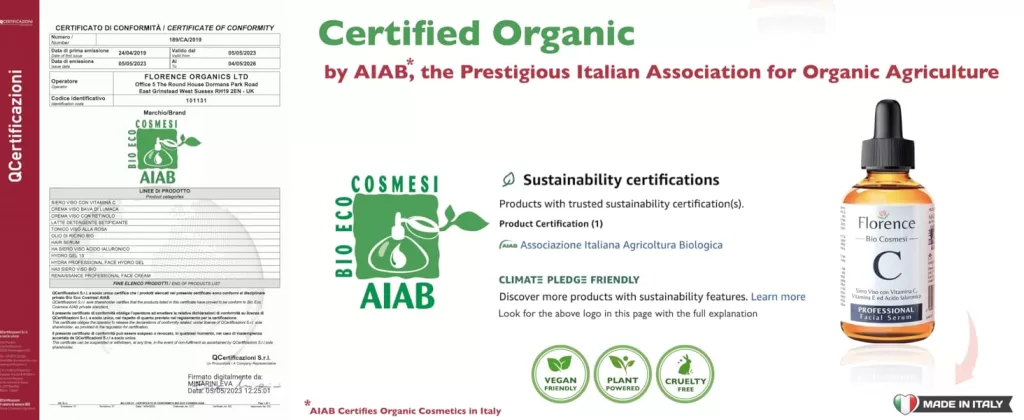
Salicylic Acid (BHA)
How It Works:
Salicylic acid is a beta hydroxy acid (BHA) that exfoliates the skin, unclogs pores, and reduces inflammation. It’s particularly effective for treating acne and oily skin.
Cellular Level:
Salicylic acid penetrates the oil glands and dissolves the debris that clogs pores. It also has anti-inflammatory properties, which help to reduce redness and swelling associated with acne.
Best Used With:
- Niacinamide: Helps to soothe irritation and regulate oil production.
- Zinc: Reduces acne-causing bacteria and controls sebum production.
Avoid Combining With:
- Retinol: Can cause excessive dryness and irritation.
- Vitamin C: May cause irritation and reduce the effectiveness of both ingredients.
Ingredient Combinations: What Works and What Doesn’t
Effective Combinations:
- Vitamin C + Vitamin E + Ferulic Acid:
- Why: This combination enhances the antioxidant properties of Vitamin C and provides superior protection against free radicals.
- Example Product: SkinCeuticals C E Ferulic Serum.
- Retinol + Niacinamide:
- Why: Niacinamide helps to soothe the irritation caused by retinol and enhances the skin barrier.
- Example Product: The Ordinary Retinol 0.5% in Squalane + Niacinamide 10% + Zinc 1%.
- Hyaluronic Acid + Peptides:
- Why: Hyaluronic acid provides hydration, while peptides boost collagen production, resulting in plump, firm skin.
- Example Product: Drunk Elephant Protini Polypeptide Cream.
Combinations to Avoid:
- Retinol + Vitamin C:
- Why: Both ingredients can be irritating when used together, and Vitamin C can destabilize retinol.
- Solution: Use Vitamin C in the morning and retinol at night.
- Benzoyl Peroxide + Retinol:
- Why: Benzoyl peroxide can deactivate retinol, reducing its effectiveness.
- Solution: Use benzoyl peroxide in the morning and retinol at night.
- AHAs/BHAs + Vitamin C:
- Why: The acidic nature of AHAs/BHAs can reduce the effectiveness of Vitamin C and cause irritation.
- Solution: Use AHAs/BHAs at night and Vitamin C in the morning.
Final Thoughts:
Understanding how skincare ingredients work on a cellular level can help you tailor your routine to meet your specific needs. By knowing which ingredients work well together and which should be kept apart, you can maximize the benefits of your skincare products while minimizing the risk of irritation. Always remember to patch-test new products and introduce them gradually to your routine.
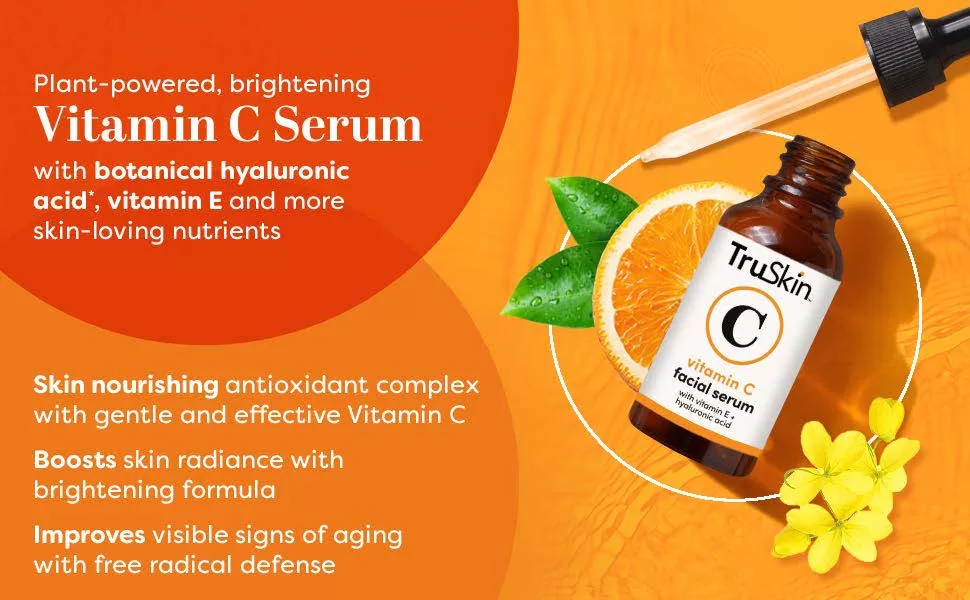
User Experiences: Real Stories of Skincare Transformations
Sarah’s Journey to Clear, Glowing Skin
Skin Type: Oily, Acne-Prone
Challenge: Persistent breakouts and uneven texture
Routine:
- Morning: CeraVe Foaming Cleanser, Vitamin C Serum, Oil-Free Moisturizer, SPF 50
- Night: Double Cleansing, Niacinamide Serum, Retinol (2-3 times a week), Lightweight Moisturizer
Experience:
Sarah struggled with acne for years, trying countless products with little success. After learning about her skin type and the importance of hydration, she switched to a simple routine focused on gentle cleansing, hydration, and targeted treatments. Within 6 weeks, her breakouts reduced significantly, and her skin started to glow. “I finally feel confident without makeup,” she says. “The combination of niacinamide and retinol has been a game-changer for my acne scars.”
James’ Battle with Dry, Sensitive Skin
Skin Type: Dry, Sensitive
Challenge: Flakiness, redness, and irritation
Routine:
- Morning: Cetaphil Gentle Cleanser, Hyaluronic Acid Serum, Rich Moisturizer with Ceramides, Mineral SPF 30
- Night: Cream Cleanser, Peptide Serum, Overnight Repair Cream
Experience:
James always avoided skincare products because they irritated his skin. After consulting a dermatologist, he started using fragrance-free, hydrating products with ceramides and hyaluronic acid. “My skin feels so much calmer and hydrated now,” he shares. “The redness has faded, and I no longer wake up with dry patches. I wish I had started sooner!”
Maria’s Anti-Aging Success
Skin Type: Combination, Aging
Challenge: Fine lines, dullness, and uneven tone
Routine:
- Morning: Gentle Cleanser, Vitamin C Serum, Peptide Moisturizer, Broad-Spectrum SPF 50
- Night: Double Cleansing, Retinol Serum (3 times a week), Rich Night Cream
Experience:
Maria noticed her skin losing its radiance as she entered her 40s. She incorporated Vitamin C and retinol into her routine after reading about their anti-aging benefits. “My skin looks brighter and firmer than it has in years,” she says. “The fine lines around my eyes have softened, and my overall texture has improved. I feel like I’ve turned back the clock!”
Alex’s Struggle with Combination Skin
Skin Type: Combination
Challenge: Oily T-zone with dry cheeks
Routine:
- Morning: Gel Cleanser, Hydrating Toner, Lightweight Moisturizer, SPF 30
- Night: Oil Cleanser, Salicylic Acid (on T-zone), Hydrating Serum, Rich Moisturizer (on dry areas)
Experience:
Alex found it challenging to balance the oily and dry areas of his face. By using targeted treatments like salicylic acid for his T-zone and rich moisturizers for his cheeks, he achieved a balanced complexion. “My skin feels so much more even now,” he says. “I no longer have to deal with shiny patches or dry flakes.
Top 5 Skincare Products for Acne-Prone Skin
- Salicylic Acid Cleanser:
- Product: CeraVe Acne Foaming Cream Cleanser
- Why it works: Unclogs pores and reduces inflammation.
- Benzoyl Peroxide Spot Treatment:
- Product: Neutrogena Rapid Clear Stubborn Acne Spot Gel
- Why it works: Kills acne-causing bacteria.
- Niacinamide Serum:
- Product: The Ordinary Niacinamide 10% + Zinc 1%
- Why it works: Reduces redness and regulates oil production.
- Lightweight Gel Moisturizer:
- Product: Clinique Dramatically Different Moisturizing Gel
- Why it works: Hydrates without clogging pores.
- Non-Comedogenic Sunscreen:
- Product: EltaMD UV Clear Broad-Spectrum SPF 46
- Why it works: Protects without causing breakouts.
How to Build a Daily Skincare Routine for Radiant Skin
- Morning Routine:
- Cleanser: Fresh Soy Face Cleanser
- Antioxidant Serum: SkinCeuticals C E Ferulic
- Moisturizer: Tatcha The Water Cream
- Sunscreen: Supergoop! Unseen Sunscreen SPF 40
- Night Routine:
- Cleanser: CeraVe Hydrating Cleanser
- Treatment: The Ordinary Retinol 0.5% in Squalane
- Moisturizer: Kiehl’s Ultra Facial Cream
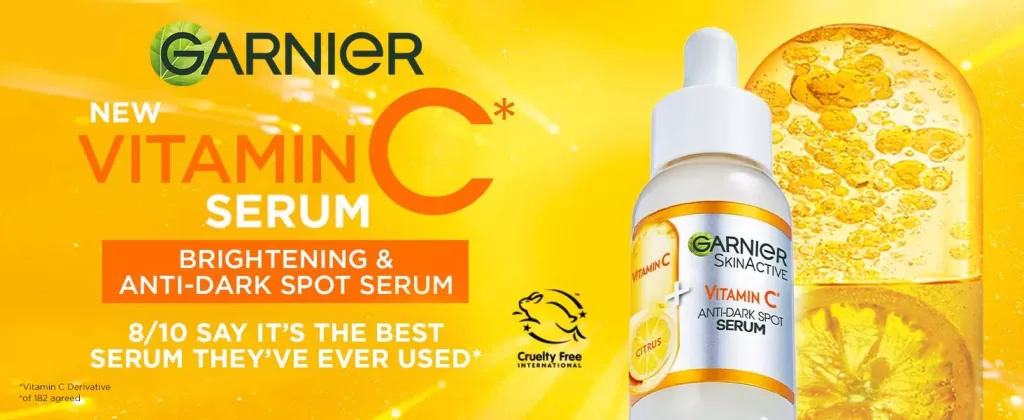
The Science Behind Skin Aging and How to Combat It
- Key Factors:
- Intrinsic Aging: Genetics and natural collagen loss.
- Extrinsic Aging: Sun exposure, pollution, and lifestyle.
- Anti-Aging Products:
- Retinoids: Differin Gel
- Peptides: Drunk Elephant Protini Polypeptide Cream
- Sunscreen: La Roche-Posay Anthelios SPF 50
Natural Skincare Remedies for Sensitive Skin
- Aloe Vera: Soothes and hydrates.
- Oatmeal Masks: Calms inflammation.
- Coconut Oil: Provides gentle moisturization.
- Green Tea Extract: Reduces redness.
The Connection Between Diet and Skin Health
- Key Nutrients:
- Omega-3s: Found in salmon and walnuts.
- Vitamin C: Found in citrus fruits and bell peppers.
- Zinc: Found in pumpkin seeds and chickpeas.
Winter Skincare: Protecting Your Skin from Cold Weather Damage
- Tips:
- Use a thicker moisturizer like CeraVe Moisturizing Cream.
- Apply lip balm like Laneige Lip Sleeping Mask.
- Avoid hot showers.
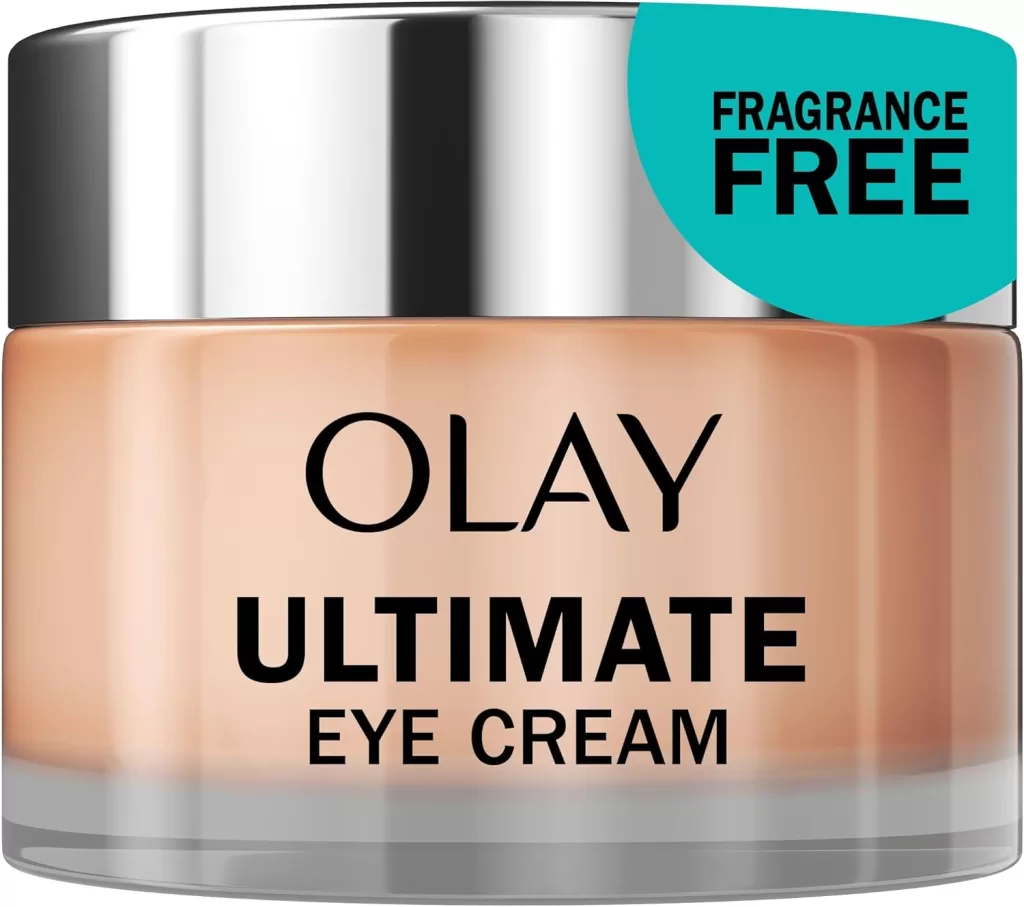
Olay Ultimate Eye Cream For Dark Circles and Puffy Eyes with Niacinamide, Visibly Smoothes Wrinkles and Fine Lines, 15ml
Common Skincare Mistakes That Are Harming Your Skin
- Mistakes:
- Over-exfoliating.
- Skipping sunscreen.
- Using too many products.
Eye Care: Essential Tips for a Bright and Youthful Look
The delicate skin around the eyes requires special attention. Incorporate an eye cream or serum into your routine to hydrate, firm, and brighten the under-eye area, reducing the appearance of dark circles and puffiness.
Top Eye Care Products:
- CeraVe Eye Repair Cream – Hydrates and strengthens the skin barrier.
- The Ordinary Caffeine Solution 5% + EGCG – Reduces puffiness and dark circles.
- Olay Eyes Ultimate Eye Cream – Targets wrinkles, puffiness, and dark circles.
- La Roche-Posay Pigmentclar Eye Cream – Brightens and depuffs tired eyes.
- Kiehl’s Creamy Eye Treatment with Avocado – Nourishes and deeply hydrates.
Apply eye cream gently using your ring finger to avoid tugging on delicate skin. Use morning and night for best results.
The Rise of Clean Beauty: Revolutionizing Skincare for All Skin Types
- Benefits:
- Avoids harmful chemicals like parabens.
- Supports sustainable brands.
- Reduces irritation.
Frequently Asked Questions (FAQs)
1. How do I determine my skin type?
You can determine your skin type by cleansing your face and leaving it bare for an hour. If your skin feels tight and flaky, you have dry skin. If it looks shiny all over, it’s oily. Combination skin will have oiliness in the T-zone (forehead, nose, and chin) but dryness on the cheeks. Sensitive skin reacts easily to products, appearing red or irritated.
2. What is the best skincare routine for glowing skin?
A good skincare routine includes cleansing, hydrating, and protecting your skin daily. In the morning, use a gentle cleanser, apply an antioxidant serum (like Vitamin C), moisturize, and finish with sunscreen. At night, cleanse again, use a treatment (such as retinol or an exfoliating acid), and apply a nourishing moisturizer.
3. How often should I exfoliate my skin?
It depends on your skin type. For normal to oily skin, exfoliating 2-3 times a week with a chemical exfoliant (like glycolic acid) is ideal. Dry or sensitive skin should exfoliate just once a week with a gentle product like lactic acid or an enzyme-based exfoliant. Over-exfoliating can damage your skin barrier and lead to irritation.
4. Do I need to wear sunscreen if I stay indoors?
Yes! UV rays can penetrate windows and cause premature aging and skin damage. A broad-spectrum sunscreen with SPF 30 or higher should be applied daily, even if you’re inside or it’s cloudy outside.
5. What are the best skincare ingredients for anti-aging?
The most effective anti-aging ingredients include retinol (boosts collagen), Vitamin C (brightens and protects), peptides (strengthen skin), hyaluronic acid (hydrates), and SPF (prevents sun damage). Using a combination of these ingredients consistently can help maintain youthful, radiant skin.
6. What’s the best way to reduce dark circles and puffiness under the eyes?
Using an eye cream with caffeine, hyaluronic acid, or peptides can help reduce puffiness and dark circles. Applying a cold compress, getting enough sleep, and staying hydrated also contribute to a refreshed under-eye area.
7. Can I use the same moisturizer for day and night?
Yes, but a dedicated night cream is often more nourishing and contains ingredients like peptides or retinol for overnight repair. Day creams are usually lighter and contain SPF for sun protection.
8. What foods are best for healthy skin?
A diet rich in antioxidants, omega-3 fatty acids, and vitamins can improve skin health. Foods like berries, salmon, avocados, nuts, and leafy greens support hydration, reduce inflammation, and promote a radiant complexion. Drinking plenty of water is also crucial.
9. What are the biggest skincare mistakes to avoid?
Some common skincare mistakes include skipping sunscreen, over-exfoliating, using too many products at once, not removing makeup before bed, and using products not suited to your skin type. Consistency and simplicity often lead to the best results.
10. How long does it take to see results from a new skincare routine?
It depends on the products used. Hydration and brightness improvements may be noticeable within a few days, while acne treatments and anti-aging products typically take 4-6 weeks. Patience and consistency are key to achieving long-term skin benefits.
Related Article:

Get a Natural Glow: Mixing Primer and Highlighter for Luminous Skin

Explore more articles like this @ Where And How Resources
If you found this article helpful, don’t forget to share it with your friends and followers!
